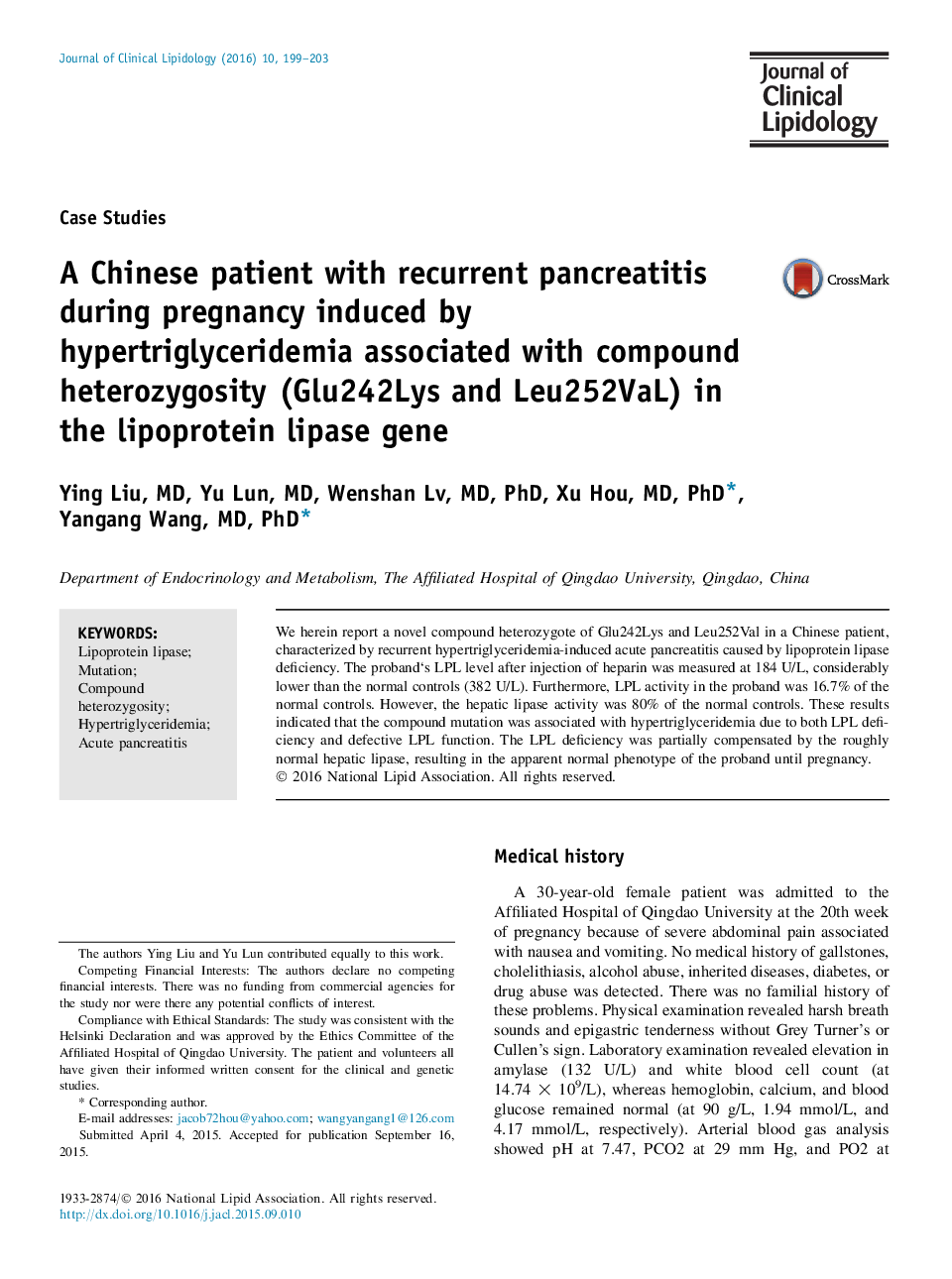| Article ID | Journal | Published Year | Pages | File Type |
|---|---|---|---|---|
| 5985208 | Journal of Clinical Lipidology | 2016 | 6 Pages |
â¢Severe hyperlipidemia initially was discovered in pregnancy with pancreatitis.â¢A pre-existing genetic defect compromising lipid metabolism was evaluated.â¢The recurrent AP in the patient was attributable to a novel compound heterozygous mutations in LPL.â¢The mutations are responsible for markedly reduced LPL activity in postheparin plasma.
We herein report a novel compound heterozygote of Glu242Lys and Leu252Val in a Chinese patient, characterized by recurrent hypertriglyceridemia-induced acute pancreatitis caused by lipoprotein lipase deficiency. The proband's LPL level after injection of heparin was measured at 184 U/L, considerably lower than the normal controls (382 U/L). Furthermore, LPL activity in the proband was 16.7% of the normal controls. However, the hepatic lipase activity was 80% of the normal controls. These results indicated that the compound mutation was associated with hypertriglyceridemia due to both LPL deficiency and defective LPL function. The LPL deficiency was partially compensated by the roughly normal hepatic lipase, resulting in the apparent normal phenotype of the proband until pregnancy.
